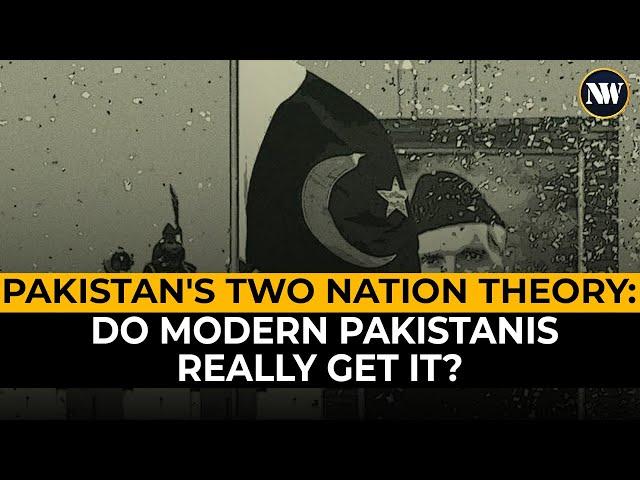
From Secular to Sacred: Pakistan's Two-Nation Theory
Yasser Latif Hamdani in his article "Two Nation Theory and Its Iterations" for The Friday Times writes that the evolution of the Two Nation Theory is evident in Pakistan's constitutional history. Initially, it emphasized a secular concept of Muslim identity based on cultural criteria. However, post-1971, a theological interpretation emerged, leading to significant constitutional changes. The 1973 Constitution marked a shift towards a theocentric perspective, establishing Islam as the state religion and narrowing the definition of Muslim identity. The original notion of the Two Nation Theory aimed at shared governance between Hindus and Muslims in post-independence India. It proposed a consociation democracy, but the disparity in numbers led to the partition. This idea emerged in response to Hindu nationalism, predating Muslim nationalism.
#newwaveglobal #pakistan #india #jinnah
#newwaveglobal #pakistan #india #jinnah
Тэги:
#new_wave_global #yasser_latif_hamdani #yasir_latif_hamdani #yasir_lateef_hamdani #yasser_hamdani #two_nation_theory #national_minorities_day_pakistan #national_minorities_day_in_pakistan #history_behind_pakistan_resolution #did_jinnah_want_a_secular_or_islamic_pakistan #pakistan_resolution_day_documentary #memory_of_quaid-e-azam_at_pakistan #history_of_pakistan #pakistan_resolution_day_23_march_1940 #pakistan_fascist_state #minorities_in_pakistan #real_history_of_pakistanКомментарии:
From Secular to Sacred: Pakistan's Two-Nation Theory
New Wave Global
"Играй гармонь" в Орле
Pervy Oblastnoy
УРОК ЛИЦЕМЕРИЯ
Kagramana Video
Physical and Chemical Changes - Chemistry Tutorial
TheChemistrySolution
Как создать свой браслет? Мастер-класс по плетению браслета! Браслет Косичка!
Ratatosk Leather Accessories
My son hired an actress to play me at his wedding
Fabiosa Animated
welches Visum für Thailand
Stefans Thailand Tagebuch


























